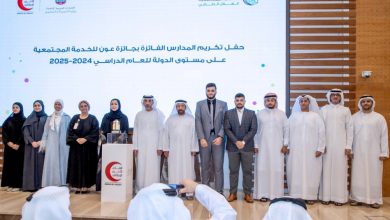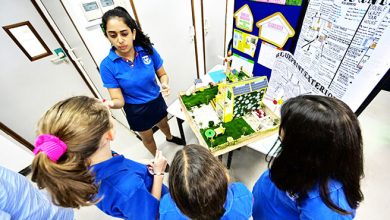Exploring the Wonders of Pre-Nursery: Nurturing Young Minds for Success

Pre-nursery training, otherwise called early youth schooling, is an essential stage in a youngster’s development that lays the groundwork for deep-rooted learning and success. This pre nursery hong kong period, regularly crossing from birth to around three years of age, is characterized by quick development and development, making it an optimal opportunity to acquaint youngsters with an invigorating and nurturing learning climate.
Early Stimulation and Exploration:
Pre-nursery training gives young kids open doors for exploration, disclosure, and tangible stimulation. Through age-suitable exercises like tangible play, narrating, music, and workmanship, youngsters are urged to utilize their faculties to investigate their general surroundings and get a handle on their encounters. These exercises assist with animating mental health, advance cognitive skills, and lay the foundation for future learning in regions like language, math, and science.
Socialization and Emotional Development:
In pre nursery hong kong, youngsters get the opportunity to cooperate with their friends and foster significant social and emotional skills. Through play-based exercises and gathering collaborations, youngsters learn important illustrations of sharing, participation, compassion, and compromise. These early friendly encounters assist youngsters with fostering a feeling of having a place, constructing fearlessness, and laying out good associations with others, making way for solid social development in later years.
Language and Communication Skills:
Pre-nursery training assumes a fundamental role in cultivating language and communication skills in young kids. Educators and guardians draw in kids in discussions, melodies, rhymes, and stories, assisting them with creating jargon, comprehension, and expressive language skills. Openness to a rich language climate very early in life establishes the groundwork for later proficiency skills and scholarly success.
Motor Skills and Physical Development:
Physical action is an indispensable piece of pre-nursery training, as it advances gross and fine motor skills development. Through exercises like creeping, climbing, bouncing, and control of articles, youngsters strengthen their muscles, further develop coordination, and foster spatial mindfulness. Outside play additionally opens doors to tangible encounters, exploration of nature, and the development of gross motor skills like running, bouncing, and adjusting.
Cognitive and Problem-Solving Skills:
Pre-nursery training cultivates cognitive development and problem-solving skills through hands-on exercises and unassuming play encounters. Kids participate in exercises that energize decisive reasoning, imagination, and interest, like structure with blocks, arranging articles, and solving basic riddles. These exercises assist youngsters with developing significant cognitive skills, for example, problem-solving, navigation, and coherent thinking, which are fundamental for scholarly success and deep-rooted learning.
Parental Involvement and Support:
Notwithstanding formal pre-nursery programs, parental involvement and support are fundamental for nurturing young minds and encouraging an affection for learning. By cooperating with guardians and parental figures, pre-nursery teachers can make consistent progress between home and school, giving coherence and consistency to the youngster’s learning process.
Pre-nursery schooling assumes an imperative role in nurturing young minds and establishing the groundwork for future success. Through an invigorating and nurturing learning climate, kids foster fundamental skills and capabilities in regions like socialization, language development, motor skills, cognizance, and problem-solving. By cultivating an affection for learning and exploration at an early age, pre-nursery schooling shows kids the way to becoming sure, fit, and long-lasting students.



